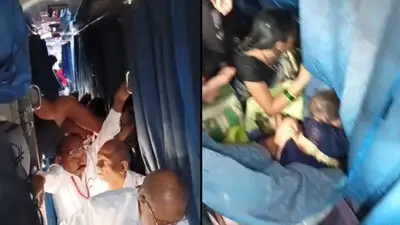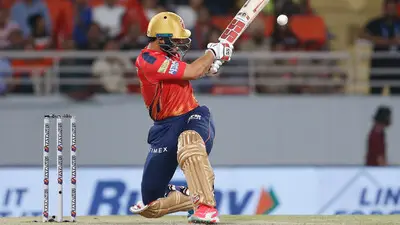The move came as Shia protesters picketed on the streets of Balochistan capital Quetta with bodies of their community members killed in Pakistan's worst sectarian bombings on Thursday last. They had refused to bury the dead till their demand for dissolution of the provincial government was met.
Ashraf announced the the federal government's decision at 1.30 am during a meeting with Shia leaders at Alamdar Road, a Shia-dominated neighbourhood in Quetta where 98 people were killed and over 120 injured in bomb attacks on Thursday.
"After all consultations, we have decided to invoke Article 234 of the Constitution in Balochistan and this gives the power for Governor's Rule...The Governor will be the chief executive and the provincial government has been dismissed," the Prime Minister said, prompting cheers from Shia leaders.
However, the government did not concede to a demand from the ethnic Hazara Shias for the army to be given control of Quetta to improve security for the vulnerable minority community and to carry out operations against sectarian groups like the banned Lashkar-e-Jhangvi.
When Shia leaders repeated the demand for the army to be given control of Quetta, Ashraf said Governor Zulfiqar Magsi and the civil administration would have the authority to call in the military if needed.
An apex committee headed by the Corps Commander of the army's Southern Command had been formed for ensuring security, he said.
"I expect the Governor to immediately arrest the perpetrators of (Thursday's) attacks so that they can be given exemplary punishment. No one is to be spared," Ashraf said.
The paramilitary Frontier Corps had been given all powers of the police to probe incidents and make arrests, he added.
Shia leaders later announced they would end their protest at Alamdar Road, where they had been staging a sit-in with bodies of over 80 victims of the bombings.
Hazara Shia leader Qayyum Changezi of the Unity Council said the four-day sit-in had ended with the dissolution of the coalition government in Balochistan led by Chief Minister Aslam Raisani of PPP. Preparations have started for burying the dead at a Hazara cemetery.
The Majlis Wahdat Muslimeen, a leading Shia body, announced it too would end its country-wide sit-in protests.
Changezi told thousands of people staging the sit-in at Alamdar Road that the demands of the Hazara Shias had been met by the government.
The sit-in in Quetta had sparked similar protests by Shia and civil society groups in towns and cities like Islamabad, Rawalpindi, Karachi, Hyderabad, Lahore, Multan, Chakwal, Peshawar, Gilgit and Parachinar.
At all the places, the protesters had said they would remain on the roads till the dead were buried in Quetta.
In Karachi, a large number of Shias and civil society activists besieged the Bilawal House, the private residence of President Asif Ali Zardari.
They carried posters that read "All we demand is peace" and "Why Shia killing is not stopped?"
Angry protesters manhandled two provincial ministers last night.
During their meeting with the Premier in Quetta early this morning, Shia leaders said 1,100 Hazara Shias had been killed in terror attacks so far.
They said this was a large number in proportion to their small population of about five lakhs.
The Shia leaders said that no action was taken by authorities even when pilgrims travelling to Iran were pulled off buses and killed in Chief Minister Raisani's hometown.
Raisani or other ministers never met the victims of terror attacks, they said.
The leaders alleged some provincial ministers were sheltering and backing target killers and militants.
The banned LeJ had claimed responsibility for Thursday's attacks which targeted a crowded snooker club.
A suicide bomber blew himself up inside the club and a powerful car bomb went off minutes later, when journalists, policemen and rescue teams had gathered in the area.












